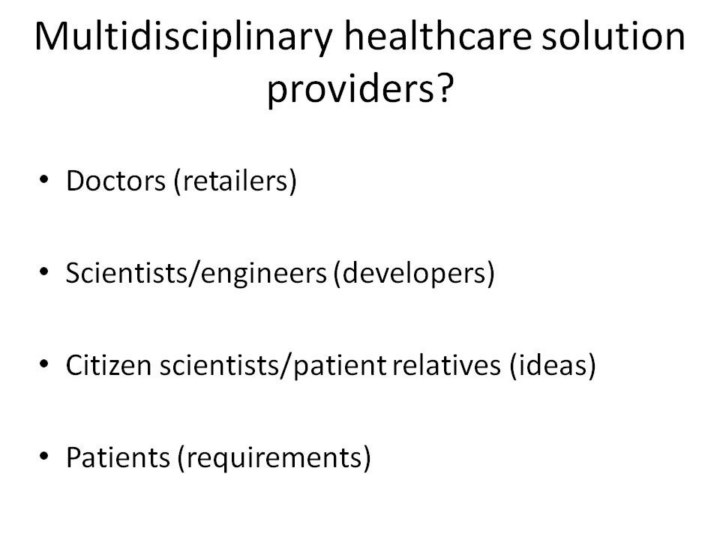| front |1 |2 |3 |4 |5 |6 |7 |8 |9 |10 |11 |12 |13 |14 |15 |16 |17 |18 |19 |20 |21 |22 |23 |24 |25 |26 |27 |28 |29 |30 |31 |32 |33 |34 |35|36 |37 |38 |39 |40 |41 |42 |43 |44 |45 |46 |47 |48 |49 |50 |51 |52 |53 |54 |55 |56 |57 |58 |59 |60 |61 |62 |63 |64 |65 |66 |review |
 |
Doctors are retailers and can only offer what they have in their shops (which are run by the drug industry, big-pharma, device companies etc etc). The closest to healthcare problems are patients followed by their relatives and citizen scientists (out of choice or without) and other than doctors scientists and engineers who actually produce the goods in doctor shops are the farthest from the patientís real world problems. Is this one of the reasons it gets increasingly difficult for patients to avail of suitable solutions precisely tailor made to their requirements? Precision medicine seems to be at its infancy restricted largely to the molecules that makes a patient? What if we had an ecosystem where all of these stakeholders worked together to generate solutions around their individual patient?
|